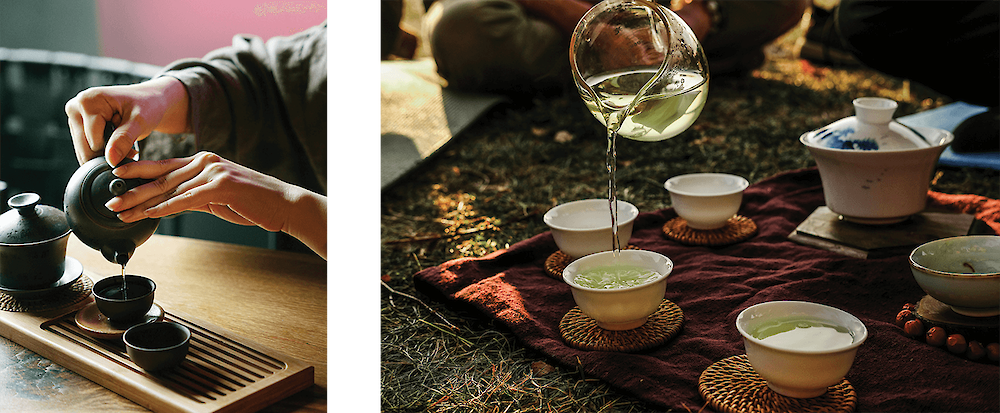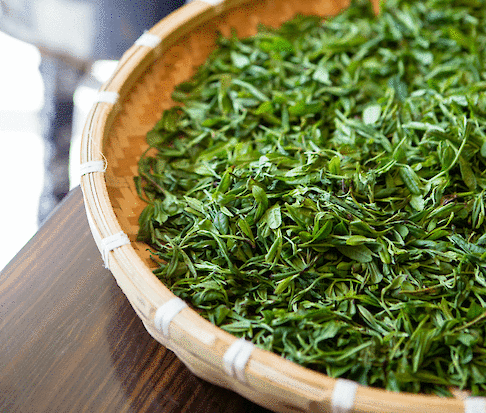Green Tea: Proof Nature has a Crush on Us?
Green tea is so entrenched in human well-being and history—it’s hard to not feel flattered.
Legend has it, some 4000 years ago, Nature said “I’ve been working on something, I want to share it with you” and our long and beautiful relationship with green tea was born.
One very-long-ago day, around 2737 BCE, a Chinese emperor was enjoying some fresh air when a breeze blew leaves from the tea plant, Camellia sinensis, into his pot of boiling water. Curious, he drank the leafy water and, like green tea drinkers today, the emperor found the aroma “pleasant and the flavor refreshing”.

Thousands of years of consumption and adoration later, in the sixth century, Chinese Buddhist monks brought green tea to Japan—the origin of why Japanese and Chinese green teas taste different today, despite all black, green, and oolong teas coming from the same plant, Camellia sinensis (a close relative to camellia plants common in gardens).
All green teas are typically picked young and then go through a heating process to halt oxidation. Chinese green teas, like Jasmine Green Tea, are left on the plant a little longer, then pan roasted, resulting in a golden hue and a sweet, nutty flavor, while Japanese green teas have a grassier, lighter flavor from being picked a bit younger and steamed, rather than roasted.
Steaming protects more nutrients than roasting, however, all green teas are so high in powerful plant compounds, drinking any variety is a love letter to your body, straight from Nature herself. We’re currently obsessed right back with the brightly fruity and lemongrass-y goodness of our YOGI TEA® Green Tea Ginger Lemon.

A daily ritual dating this far back, mindfully practiced with gratitude, and with so many feel-good benefits can only be described as a relationship. In other words, we’re crushing on you, too, Green Tea.



